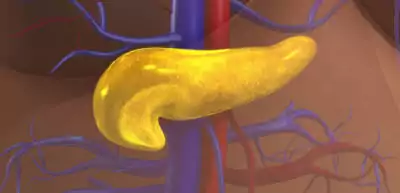PCOS test is based on the Rotterdam criteria for diagnosing PCOS.

Drug Side Effects
While sitagliptin continues to earn billions of dollars for its manufacturers as a preeminent anti diabetic drug, it has a long list of side effects, both minor and major. Other than the increased risks of thyroid and pancreatic cancer, another major side effect of using the drug is pancreatitis or inflammation of the pancreas.
Sitagliptin (and all other gliptins) are dipeptidyl peptidase IV (DPP-IV) inhibitors. It regulates blood sugar levels by prolonging the activity of certain hormones called incretin hormones. You can follow this link to understand how sitagliptin works.
Earlier it was thought that the risk of developing pancreatitis was inherent in patients suffering from diabetes. Later it was found that patients who were taking the drug were more likely to suffer from pancreatitis than those taking any other medication.
After assessing 88 cases of pancreatitis from sitagliptin use, reported between 2006 and 2009, the US FDA revised the prescribing information of the drug to include information about the risks of pancreatitis.
The common side effects of sitagliptin include digestive issues like diarrhea, nausea and abdominal pain. Unfortunately, the symptoms of pancreatitis are also similar. So whether the patient is suffering from side effect of sitagliptin or from pancreatitis is difficult to say. When the pancreatitis is drug-induced, some patients also display an altered mental status. This is a result of the release of massive amounts of toxins from an inflamed pancreas.
Another observation of serious concern came from a study in which a high fat diet was found to be a risk factor in sitagliptin-induced pancreatitis. This means that a low-carb high-fat diet (LCHF diet), which is used by doctors such as Dr. Jason Fung, M.D., to reverse Type 2 diabetes, cannot work in patients on sitagliptin treatment.
This drug continues to be recommended by doctors as its activity is meal-dependent and does not pose the risk of hypoglycemia. But considering the possible serious side effects of conventional anti-diabetic medicines, a more holistic solution to reversing type 2 diabetes may be worth considering.
“Type 2 diabetes can be reversed” is the new mantra of M.D.s who are using the right dietary and lifestyle modifications to achieve results. Functional medicine is now being seen as an approach that can help tackle the global load of chronic diseases, brought on by a faulty lifestyle.
https://www.fda.gov/Drugs/DrugSafety/PostmarketDrugSafetyInformationforPatientsandProviders/DrugSafetyInformationforHeathcareProfessionals/ucm183764.htm
https://www.ncbi.nlm.nih.gov/pmc/articles/PMC4365846/
https://www.ncbi.nlm.nih.gov/pubmed/24534256